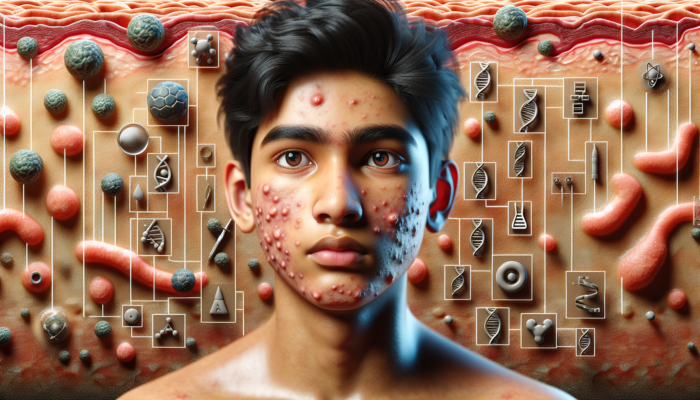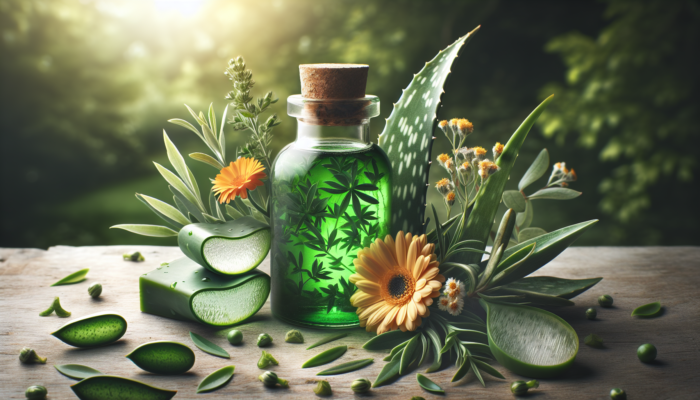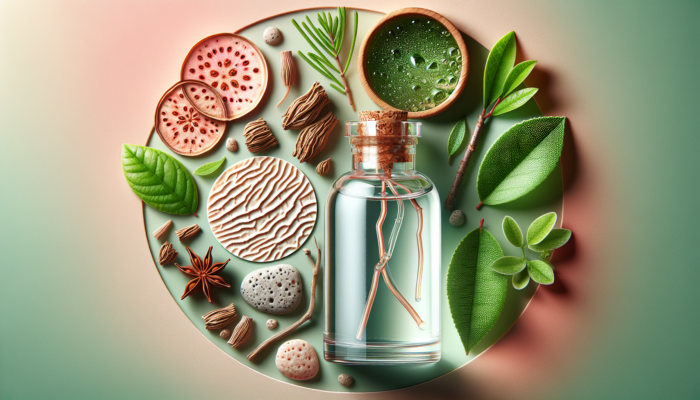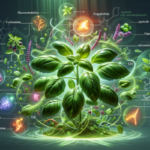Unlock the Power of Herbal Solutions for Comprehensive Teen Acne Care
In today’s society, the popularity of herbal solutions for teen acne has reached unprecedented heights. Unlike conventional treatments that often prove harsh and irritating to delicate skin, these natural alternatives offer a gentler approach with significantly lower risks of adverse effects. Increasingly, teenagers and their parents are gravitating towards holistic remedies that not only address the visible impacts of Acne but also nurture overall skin health. Herbal remedies harness the power of nature, providing a rich source of antioxidants, anti-inflammatory compounds, and ingredients that promote skin repair and rejuvenation. This holistic approach paves the way for achieving clearer and healthier skin.
Throughout adolescence, many teenagers grapple with skin issues such as acne, which can dramatically influence their self-esteem and body image. Gaining insight into the myriad factors that contribute to acne is imperative for devising effective treatment plans. The underlying causes of acne are multifaceted, often stemming from hormonal shifts during puberty, genetic factors, and lifestyle choices including diet and stress. As adolescents experience hormonal fluctuations, their sebaceous glands may become hyperactive, leading to excess oil production that clogs pores and triggers acne breakouts.
When exploring new treatment options, prioritizing safety is of utmost importance. Conducting a patch test prior to applying any herbal remedy to the entire facial area is essential, as allergic reactions can occasionally occur unexpectedly. It is also wise to consult with a dermatologist before embarking on any new treatment regimen, particularly for individuals with sensitive skin or pre-existing conditions. This precautionary step ensures that the selected remedies are safe and tailored to each person’s unique skin characteristics.
Delving into the Intricate Causes and Triggers Behind Acne Outbreaks

Acne is a complex skin condition that varies significantly among individuals. Various factors contribute to the emergence of acne, with hormonal fluctuations during the teenage years being a critical influence. These hormonal changes can lead to increased oil production, which, when combined with dead skin cells, clogs pores and creates an ideal environment for acne development. Additionally, genetic predisposition plays a significant role; teenagers with a family history of acne are often more prone to experiencing similar skin challenges.
Furthermore, lifestyle choices can exacerbate the severity of acne symptoms. Diets high in processed foods and sugars can provoke inflammatory responses in the body, while elevated stress levels can trigger hormonal imbalances that worsen acne outbreaks. The use of cosmetics or skincare products containing harsh chemicals may also irritate the skin, contributing to additional breakouts. Understanding these underlying causes is crucial for both parents and teenagers aiming to effectively manage acne through herbal remedies for teen acne.
Discovering the Exceptional Benefits of Herbal Remedies for Acne Control
One of the most compelling reasons to explore herbal remedies for teen acne is their reliance on natural formulations. A growing number of adolescents and their families are becoming increasingly wary of products packed with synthetic chemicals, opting instead for gentler, plant-based alternatives. Herbal remedies typically contain fewer artificial ingredients, which significantly lowers the risk of adverse reactions. Moreover, these remedies often deliver nourishing properties that not only target existing acne but also enhance the overall vitality and health of the skin.
Many herbal treatments are rich in antioxidants, which play a vital role in neutralizing harmful free radicals and reducing inflammation. For instance, extracts like green tea are celebrated for their powerful anti-inflammatory properties, making them effective in soothing irritated skin. Additionally, herbal remedies can facilitate skin healing, minimize the appearance of acne scars, and promote a more uniform complexion, ultimately leading to healthier and more radiant skin.
Crucial Safety Practices for Using Herbal Treatments for Skin Wellness
While herbal remedies offer a host of advantages, it is essential to approach their application carefully. Not all natural ingredients suit every skin type, making it imperative to perform a patch test before applying any new product. This precautionary step involves applying a small amount of the remedy to a discreet area of skin to monitor for potential adverse reactions before proceeding with full facial application.
Moreover, seeking guidance from a dermatologist can provide invaluable insights into which herbal remedies may prove most effective for a teenager’s specific skin condition and type. It is equally vital to remember that while herbal remedies can aid in promoting skin health, they should complement rather than replace conventional treatments prescribed by healthcare professionals, especially in cases of severe acne.
Key Herbal Ingredients That Effectively Fight Acne

When investigating herbal remedies for teen acne, specific ingredients emerge as particularly effective due to their proven benefits for the skin. Each herbal component offers distinct advantages that aid in managing and alleviating acne symptoms, enhancing the overall skincare experience.
Utilizing the Antibacterial and Anti-Inflammatory Properties of Tea Tree Oil
Tea tree oil is widely regarded as one of the most powerful herbal ingredients for addressing acne. Its strong antibacterial and anti-inflammatory properties make it highly valued. Extracted from the leaves of the Melaleuca alternifolia plant, tea tree oil has been used for centuries by Indigenous Australians for its therapeutic effects. Its primary benefit lies in its ability to eradicate acne-causing bacteria, making it a formidable topical treatment for blemishes.
When applied to the skin, tea tree oil penetrates deeply into the pores, significantly reducing inflammation and helping to alleviate the redness and irritation often associated with acne. Additionally, it helps to regulate oil production, making it particularly beneficial for individuals with oily skin. However, due to its concentrated nature, tea tree oil should always be diluted with a carrier oil, such as jojoba or coconut oil, before application to prevent any potential skin irritation.
Harnessing Aloe Vera for Its Natural Healing and Calming Effects
Aloe vera stands out as another potent ingredient in herbal remedies for teen acne. Recognized for its soothing and healing properties, aloe vera gel is harvested from the leaves of the succulent plant. Its anti-inflammatory and antimicrobial attributes make it an ideal treatment for acne-prone skin, effectively alleviating irritation while promoting skin healing.
Beyond its immediate soothing effects, aloe vera can assist in the healing of acne scars, gradually reducing their visibility over time. Its hydrating qualities help maintain skin moisture without clogging pores, making it a suitable choice for various skin types. Incorporating aloe vera into a daily skincare regimen can significantly improve skin texture and clarity, resulting in a more refined overall appearance.
Exploring Witch Hazel: A Natural Astringent with Versatile Benefits

Witch hazel, a natural astringent derived from the bark and leaves of the witch hazel plant, proves particularly effective in managing excess oil production, making it an invaluable asset in the realm of herbal remedies for teen acne. Witch hazel can help prevent future breakouts while enhancing overall skin tone by tightening and minimizing the size of pores.
In addition to its astringent properties, witch hazel possesses anti-inflammatory characteristics that can soothe irritated skin and reduce redness associated with acne. When utilized as a toner, it refreshes the skin while eliminating lingering impurities, preparing it for subsequent treatments. Integrating witch hazel into a skincare routine can effectively aid in managing acne while enhancing the overall appearance of the skin.
Crafting Customized Herbal Remedies for Effective Acne Relief
Creating homemade herbal remedies for teen acne can be a fulfilling and effective strategy for addressing skin concerns. These DIY solutions empower individuals to take control of the ingredients they use, tailoring treatments to meet their specific skin needs. Below are straightforward yet impactful recipes that can easily be incorporated into your skincare routine.
DIY Tea Tree Oil Face Wash for Optimal Acne Control
Developing a homemade tea tree oil face wash is an excellent method to tap into the advantages of this powerful ingredient while maintaining a natural skincare regimen. Start with a mild liquid castile soap as the base, which cleanses the skin without stripping it of its natural oils. Add a few drops of tea tree oil into the soap and mix thoroughly to combine the ingredients.
This face wash can be used daily to cleanse the skin, effectively removing dirt, oil, and makeup while combating acne-causing bacteria. Rinse thoroughly with lukewarm water and follow up with a moisturizer to ensure adequate skin hydration. Consistent use of this face wash can lead to noticeable improvements in skin clarity and texture over time.
Soothing Aloe Vera and Honey Mask for Enhanced Acne Relief
The combination of aloe vera and honey creates a calming mask that maximizes the healing properties of both ingredients. To prepare this mask, mix equal parts of fresh aloe vera gel and raw honey. Apply the mixture to the face, concentrating on areas prone to breakouts, and leave it on for about 15 to 20 minutes.
Honey is celebrated for its antibacterial properties, while aloe vera offers soothing and hydrating effects on the skin. This mask can be used once or twice a week to encourage healing and reduce inflammation, providing a natural remedy that leaves the skin feeling soft, refreshed, and rejuvenated.
Homemade Witch Hazel Toner for Achieving Balanced Skin
Crafting a witch hazel toner is a simple yet effective way to enhance your skincare routine. Combine witch hazel with distilled water in a spray bottle, maintaining a 1:1 ratio for optimal results. For added benefits, you might consider infusing the mixture with a few drops of essential oils, such as lavender or tea tree oil.
After cleansing your face, spritz the toner onto your skin or apply it using a cotton pad. This toner effectively manages oiliness, reduces the visibility of pores, and delivers a refreshing boost to the skin. Regular use can lead to a more balanced complexion, making it an essential part of a teenager’s skincare regimen.
Holistic Approaches: Merging Lifestyle and Nutrition for Comprehensive Acne Management
While topical treatments play a crucial role in managing teen acne, lifestyle and dietary choices have a significant impact on overall skin health. By making informed decisions in these areas, teenagers can amplify the effectiveness of their herbal remedies and promote clearer skin from within.
Eating Strategies for Achieving Clearer Skin
A diet abundant in whole foods, particularly those rich in antioxidants and omega-3 fatty acids, can substantially benefit skin health. Foods such as berries, leafy greens, nuts, and fatty fish work to reduce inflammation and support the skin’s healing processes. Antioxidants are vital in neutralizing free radicals that can harm skin cells and exacerbate acne.
Incorporating nutrient-dense foods like avocados and sweet potatoes can provide essential vitamins and minerals that promote a radiant complexion. Moreover, limiting processed foods and sugar intake can help prevent blood sugar spikes known to trigger acne flare-ups. A balanced diet nurtures not only the skin but also enhances overall well-being.
The Essential Role of Hydration for Optimal Skin Health
Hydration is often overlooked when it comes to maintaining clear skin. Drinking adequate amounts of water throughout the day is crucial for flushing out toxins from the body, thereby reducing the likelihood of breakouts. When the body is sufficiently hydrated, the skin retains its elasticity and overall health.
Encouraging teenagers to consume at least eight glasses of water daily can significantly bolster their skincare efforts. Additionally, herbal teas can serve as a fantastic alternative, providing extra antioxidants that benefit skin health. Staying well-hydrated contributes to a luminous complexion and supports the optimal functioning of bodily systems.
Incorporating Effective Stress Management Techniques for Healthier Skin
Stress can have a profoundly negative effect on skin health, often exacerbating acne due to hormonal fluctuations and inflammation. Implementing stress management techniques can be beneficial for teenagers struggling with acne. Activities such as yoga, meditation, and deep-breathing exercises can significantly alleviate stress levels and encourage relaxation.
Encouraging regular physical activity can also be an effective outlet for stress relief. Exercise enhances blood circulation, delivering essential oxygen and nutrients to the skin while aiding in toxin elimination through perspiration. Establishing a balanced routine that incorporates stress-reducing activities can improve skin health and boost overall emotional well-being.
Debunking Common Misconceptions About Herbal Remedies for Acne
As interest in herbal remedies for teen acne continues to rise, so too do the myths surrounding their use. It is essential to distinguish between fact and fiction to make informed decisions regarding acne treatment.
Myth: Herbal Remedies Yield Instant Results
A widespread misconception is that herbal remedies provide immediate results. While some individuals may experience rapid improvements, the reality is that most herbal treatments require consistent use over time to achieve meaningful effects. Patience and dedication are vital when integrating herbal remedies into a skincare routine.
Myth: All Natural Products Are Universally Safe
Another common myth is that all-natural products are inherently safe for everyone. While many herbal remedies are gentle, certain natural ingredients can cause allergic reactions or irritate the skin, especially for individuals with sensitive skin. Performing patch tests and seeking guidance from a dermatologist is crucial to ensure that chosen remedies are suitable.
Myth: Herbal Remedies Lack Effectiveness Compared to Conventional Treatments
Many people believe that herbal remedies are less effective than traditional treatments, but this is not necessarily true. Numerous studies have demonstrated that specific herbal ingredients can be as effective as conventional medications when used appropriately. The key lies in selecting the right remedies and incorporating them into a consistent skincare regimen.
Expert Guidance on Navigating Herbal Remedies for Teen Acne
Insights from dermatologists and skincare professionals can offer invaluable advice when exploring herbal remedies for teen acne. These experts can provide recommendations that help teenagers achieve clearer skin while adhering to a healthy skincare routine.
Dermatologists’ Suggestions for Successful Acne Management
Many dermatologists advocate for the inclusion of herbal remedies as part of a holistic skincare regimen. They often recommend starting with gentle cleansers and moisturizers that incorporate herbal ingredients to avoid irritating the skin. Furthermore, dermatologists may suggest layering treatments, such as applying a witch hazel toner followed by aloe vera gel for optimal results.
It is crucial to recognize that while herbal remedies can be effective, they may not suit everyone. A personalized approach that considers individual skin types and concerns is essential for achieving successful outcomes.
Real-Life Success Stories Highlighting the Effectiveness of Herbal Remedies
Numerous real-life accounts underscore the potential of herbal remedies for teen acne. Many teenagers have successfully managed their acne by incorporating natural treatments alongside a comprehensive skincare routine. These success stories often emphasize the importance of consistency and patience in achieving desired results.
For example, a teenager battling acne may find that using a combination of tea tree oil and aloe vera significantly reduces their breakouts over several weeks. These personal narratives can inspire others to consider herbal remedies as a valid option in their acne management journey.
Current Research and Innovations in Herbal Medicine
The field of herbal medicine is continuously evolving, with ongoing studies investigating the effectiveness of various herbal ingredients in treating acne. Current research focuses on understanding the mechanisms through which these natural compounds exert their benefits, aiming to establish a solid scientific foundation for their use in skincare.
As more evidence emerges, herbal remedies are likely to gain wider acceptance within the medical community. This research not only validates the efficacy of these treatments but also encourages the development of new products that can assist those dealing with acne.
Customizing Herbal Remedies for Various Skin Types
It is essential to recognize that different skin types require tailored approaches when considering herbal remedies for teen acne. Each skin type has distinct characteristics that can impact how remedies are applied and the effectiveness of specific ingredients.
Targeted Treatments for Oily Skin Types
Ingredients like tea tree oil and witch hazel are particularly advantageous for teenagers with oily skin. The antibacterial properties of tea tree oil effectively combat acne, while witch hazel acts as a natural astringent that tightens pores and reduces oiliness. A skincare routine that incorporates these elements can significantly decrease the occurrence of breakouts.
Additionally, clay masks can help absorb excess oil and impurities, leading to clearer skin. Regular gentle exfoliation with scrubs can also assist in keeping pores clear, preventing the formation of new blemishes.
Hydrating Remedies for Dry Skin Types
When selecting herbal remedies for teen acne, teenagers with dry skin should prioritize hydration and soothing properties. Aloe vera is an exceptional choice, as it hydrates while providing anti-inflammatory benefits. Products containing chamomile can also effectively calm irritation and redness.
After applying herbal treatments, using a rich, nourishing moisturizer can help restore moisture levels and prevent further dryness. It’s crucial to avoid harsh exfoliants, as they may strip the skin of essential oils and worsen dryness.
Balanced Solutions for Combination Skin Types
Combination skin presents unique challenges that require a balanced skincare strategy. Teens with combination skin may benefit from treatments that address both oily and dry areas. A gentle cleanser containing tea tree oil can help manage oiliness, while aloe vera can provide hydration for drier regions.
Utilizing dual-purpose products, such as moisturizers that incorporate both hydrating and oil-controlling ingredients, can help maintain skin balance. Customizing treatments to target specific concerns in different areas of the face ensures a comprehensive approach to managing combination skin.
Long-Term Strategies for Successfully Managing Teenage Acne
Effectively managing teen acne requires a long-term commitment to maintaining a consistent skincare regimen. Establishing a dependable routine and closely monitoring skin changes can greatly enhance treatment outcomes and minimize future breakouts.
Building a Reliable Skincare Routine for Clear Skin
Creating a dependable skincare routine is fundamental to achieving clear skin. This regimen should include cleansing, toning, and moisturizing with herbal products tailored to the individual’s skin type. Daily cleansing is essential for removing dirt and excess oil, while toning prepares the skin for subsequent treatments.
Consistency is key; adhering to this routine can help maintain skin clarity over the long term. Incorporating herbal masks or treatments a few times weekly can further promote ongoing skin health and assist in preventing the recurrence of acne.
Tracking Progress and Adjusting Treatments as Needed
Monitoring changes in skin condition can provide valuable insights into the effectiveness of chosen treatments. Keeping a skincare diary that records product usage, skin reactions, and breakout occurrences can help identify patterns and determine what works best.
If specific remedies do not yield the desired results, adjustments may be necessary. Consulting with a dermatologist can assist in refining the skincare strategy and ensuring that the selected remedies align with the teen’s evolving skin needs.
Implementing Preventative Measures to Avoid Future Breakouts
Preventing future breakouts is a crucial component of long-term acne management. Maintaining a healthy lifestyle, which includes a balanced diet, regular hydration, and effective stress management techniques, can all contribute to clearer skin. Additionally, being mindful of skincare product choices and avoiding pore-clogging ingredients can help keep acne at bay.
Regularly updating the skincare routine to reflect changes in skin type or seasonal conditions can also be beneficial. By adopting proactive measures and committing to a consistent skincare regimen, teenagers can significantly reduce the likelihood of experiencing future breakouts.
Frequently Asked Questions About Herbal Remedies for Acne
Can Herbal Remedies Substitute for Prescription Acne Medications?
While herbal remedies can be effective for mild to moderate acne, they may not replace prescription medications in more severe cases. It is always best to consult a dermatologist for personalized advice tailored to your unique situation.
How Long Will It Take to See Results from Herbal Remedies?
The timeline for noticing results from herbal remedies can vary, but they typically require several weeks of consistent use before improvements become visible. Patience is crucial for effective acne management.
What Side Effects Should I Be Mindful Of?
Common side effects associated with herbal remedies may include skin irritation or allergic reactions. It is vital to conduct a patch test and consult a dermatologist for personalized guidance tailored to your specific needs.
Which Herbal Remedies Are Most Effective for Oily Skin?
Tea tree oil and witch hazel are excellent choices for oily skin due to their oil-regulating and antibacterial properties. Additionally, clay masks can effectively absorb excess oil.
Can Different Herbal Remedies Be Used Together?
Yes, combining herbal remedies can enhance their effectiveness. However, it’s important to monitor your skin’s response and avoid overwhelming it with too many products simultaneously.
Are Herbal Remedies Safe to Use During Pregnancy?
Some herbal remedies may not be suitable for use during pregnancy. It is essential to consult a healthcare professional before utilizing any new treatments while pregnant to ensure safety.
How Can I Identify Truly Natural Products?
To identify genuinely natural products, look for those that list natural ingredients and steer clear of those containing synthetic additives. Researching brands and reading reviews can help confirm their authenticity.
Which Ingredients Should Be Avoided in Skincare Products?
It is advisable to avoid products containing harsh chemicals, fragrances, and alcohol, as these can irritate the skin and worsen acne. Opting for gentle, natural formulations is always a more favorable choice.
Can Herbal Remedies Help with Acne Scarring?
Yes, certain herbal remedies, such as aloe vera and honey, can aid in healing acne scars while promoting healthy skin regeneration. Consistent application can lead to improved overall skin texture.
Is Professional Guidance Necessary When Using Herbal Treatments?
While many herbal remedies are generally safe, seeking advice from a dermatologist can provide tailored recommendations and ensure that the treatments align with your skin’s specific needs.
Connect with us on Facebook!
The Article: Herbal Remedies for Teen Acne: Effective Natural Solutions appeared first on https://mcrtherapies.co.uk
The Article Herbal Remedies for Teen Acne: Natural Solutions that Work appeared first on https://mcrtherapies.com
The Article Herbal Remedies for Acne: Effective Natural Solutions for Teens Was Found On https://limitsofstrategy.com

